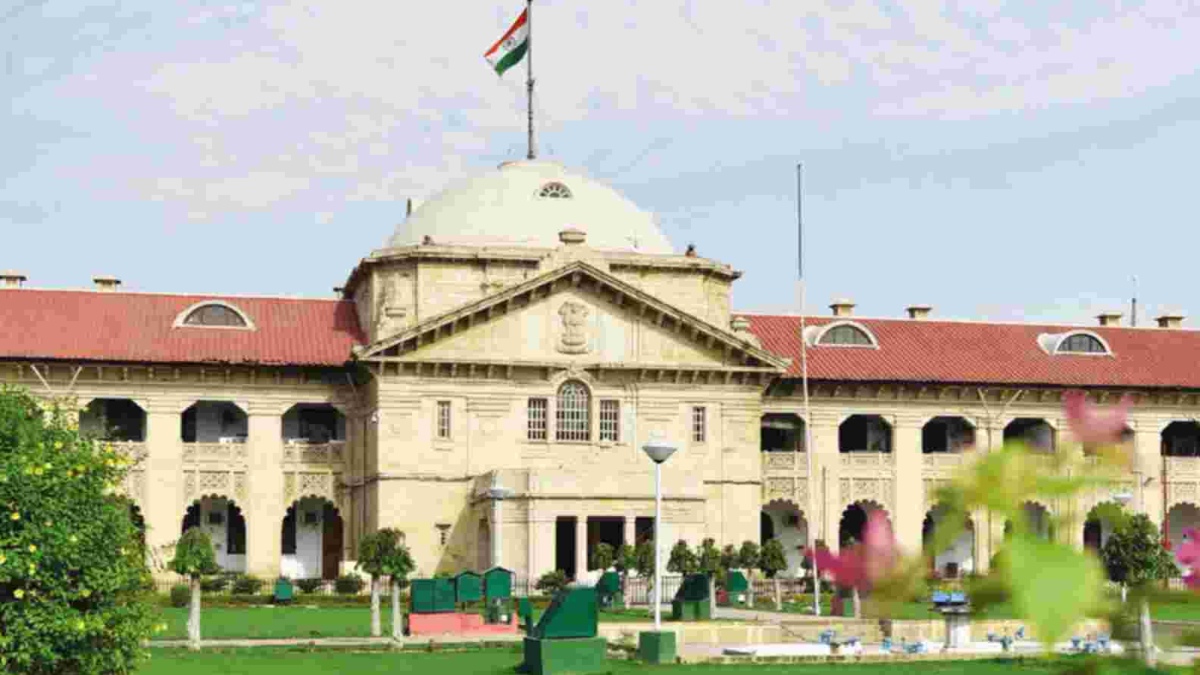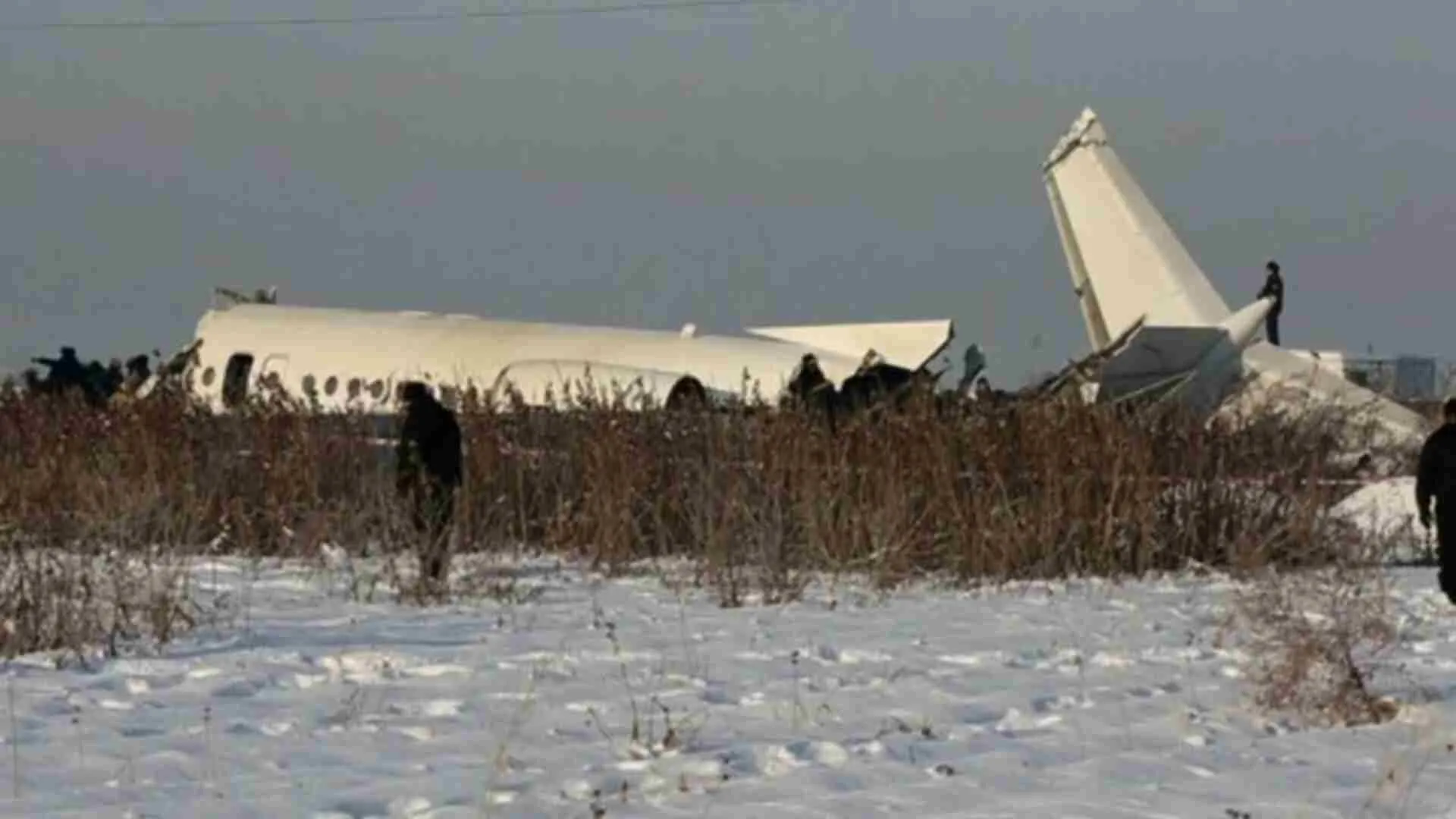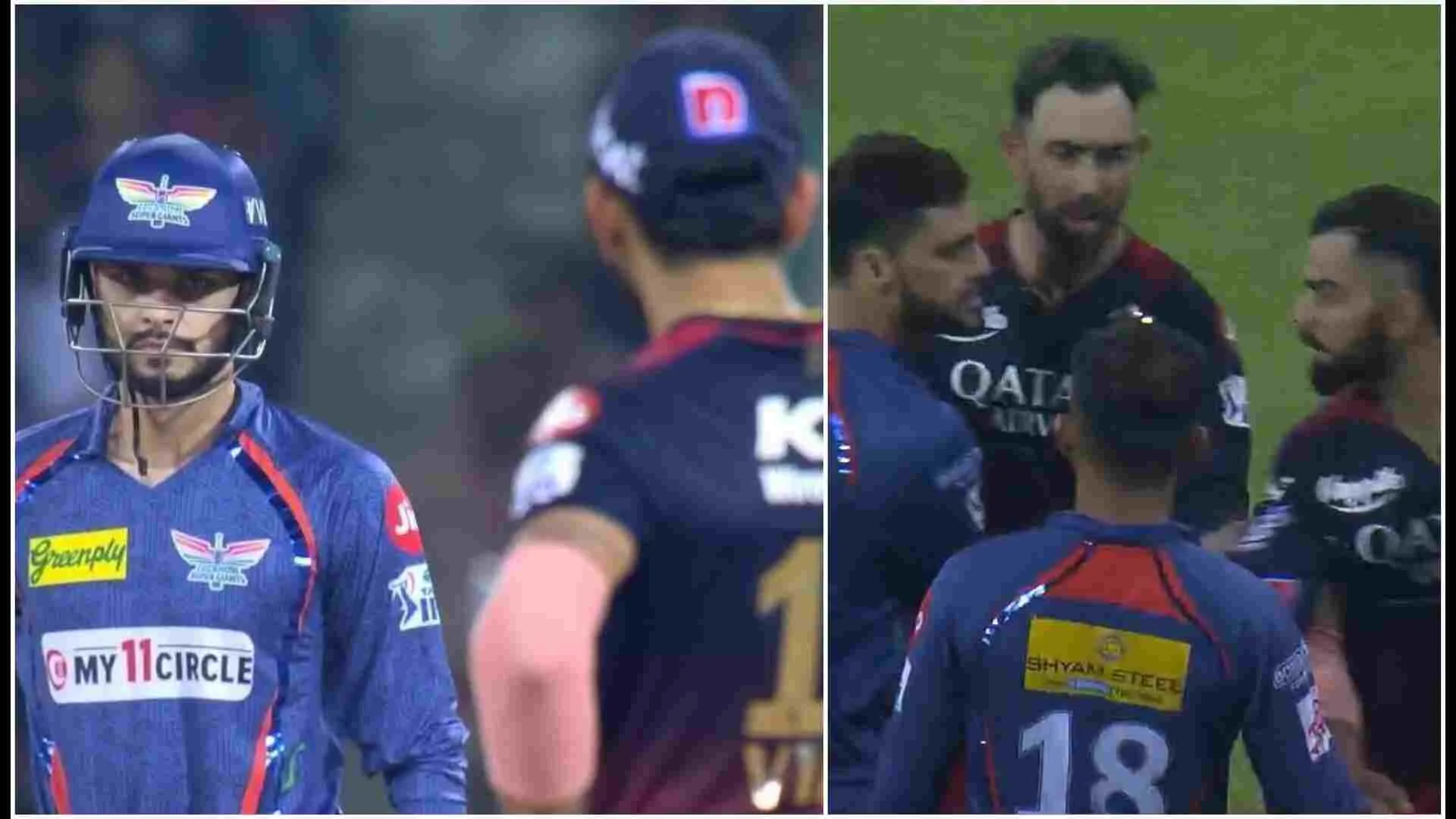In a very disciplined, dedicated and determined direction to the State of UP and its instrumentalities, the Lucknow Bench of Allahabad High Court in a most learned, laudable, landmark and latest judgment titled Ram Vilas Thru Daughter Sarojani And Another v. State of U.P. Thru. Prin. Secy. Home And Others in Habeas Corpus Writ Petition No. – 80 of 2022 and cited in 2022 LiveLaw (AB) 227 that was pronounced finally on April 11, 2022 has minced absolutely no words to observe that no person, including an accused can be summoned to a police station orally by subordinate police officials without the consent/approval of the station-in-charge. Most commendably, the Bench of Justice Arvind Kumar Mishra-I and Justice Manish Mathur further directed the authorities thus: “In case any application or complaint is given at any police station which requires investigation and presence of the accused then a suitable course of action as prescribed under provisions of Criminal Procedure Code are to be followed which contemplate a written notice being served upon such a person but that too only consequent to a case being registered.” It must also be mentioned here that the Bench issued these most commendable directions while underscoring that the life, liberty and dignity of any person cannot be thrown to the winds merely on verbal orders of police officials. We need such judgments on a regular basis which alone can ensure that people’s legal rights are not taken for a ride by the police at their own whims and fancies!
To start with, this brief, brilliant, bold and balanced judgment authored by Hon’ble Justice Arvind Kumar Mishra and Hon’ble Justice Manish Mathur sets the ball rolling by first and foremost putting forth that, “Learned A.G.A. has filed short counter affidavit, the same is taken on record. Heard Mr. Shyamendra Singh learned counsel for the petitioner whose power is taken on record, Mr. S.P. Singh learned Additional Government Advocate and perused the material brought on record of this Habeas Corpus Writ Petition.”
In hindsight, the Bench then recalls that, “Pursuant to our previous order passed on 8th April, 2022, treating the Letter Petition filed by daughter of petitioners to be a Habeas Corpus Petition, certain facts were brought to the notice of this Court on point that the petitioners namely, Savitri and Ram Vilas have been called at Police Station- Mahila Thana, Lucknow, from where they have not returned as yet. The petition after being treated as Habeas Corpus was heard by us, wherein, learned A.G.A. on behalf of the State brought to our notice the fact that no such occurrence took place at the police station as stated.”
As it turned out, the Bench then states that, “Today petitioners Savitri and Ram Vilas are present before this Court along with their daughter Sorojini duly identified by their counsel and it was informed by the petitioners that some police personnel came to them and required their presence at the police station. Pursuant thereto, petitioners went to the police station where they were allegedly detained and threatened by some police personnel.”
To put things in perspective, the Bench then envisages that, “In the short counter affidavit sworn by Ms. Durgawati posted as Inspector, Mahila Thana, Lucknow who is also personally present in Court, certain facts have been brought to the notice of this Court that petitioners had visited the police station on 08.04.2022 around 12 noon and after recording their statements were allowed to leave the police station at around 3.30 p.m., the same day. The dispute between the complainant- Smt. Sushma Devi and her in-laws i.e. petitioners pertains to partition of ancestral property. Complainant’s husband- Vinay Kumar who is the son of Ram Vilas is also supporting his wife and claiming his share in the ancestral property.”
Simply stated, the Bench then mentions that, “Deponent Durgavati seeks unconditional apology for inconvenience caused to the Court for the mistake committed while providing information the Court on 8.4.2022, when this petition was listed on a short notice. The mistake committed was not intentional or deliberate but due to carelessness and insubordination of Head Constable No.1681Shailendra Singh who had not informed the deponent Durgavati that he had summoned Sri Ram Vilas and his wife Savitri. The deponent Durgavati has sent a report to Deputy commissioner of Police (Central), District Lucknow, Commissionerate to take appropriate disciplinary action against him, copy whereof has been annexed as Annexure No.3 to this affidavit.”
No doubt, the Bench then while mentioning Durgavati’s version states that, “It has been stated by deponent Durgavati that there was no deliberate attempt to humiliate or harass the petitioners but it was misconduct and in-subordination of the Constable concerned otherwise there was no cause for the police to have indulged in any maltreatment of petitioners. In future the police shall be mindful of their activities.”
Of course, the Bench then steadfastly maintains that, “In such case we after deliberation express unhesitatingly that there appears to be someone amongst the police personnel who fished in troubled waters and took advantage of the situation both to the detriment of private parties as well as to the working efficiency of the police system and in particular the police station concerned. It is incumbent and obligatory upon the police authorities concerned to nip the mischief in its bud.”
As we see, the Bench then observes that, “The right of a citizen not to be detained or restrained by the State or its instrumentalities without the backing of any law is fundamental as reflected in Articles 19(1)(d), 21 and 22 of the Constitution of India. Article 19(1)(d) protects rights of citizens to move freely throughout the territory of India with sub section 5 imposing reasonable restrictions either in the interest of general public or for protection of interest of any scheduled tribe. Article 21 relates to protection of life and personal liberty of any person including non citizens. Article 22 of the Constitution inheres protection against arrest and detention in certain cases.”
In retrospect, the Bench then while recalling one of the most relevant judgments remarked that, “As far back as 1950, His Lordship Hon’ble Justice Fazl Ali in the case of A.K. Gopalan versus State of Madras, A.I.R. 1950 Supreme Court 27 in his dissenting judgment has held that there is no antithesis between words ‘restriction’ and ‘deprivation’. It was held that restraint on the right to move can assume a variety of forms and restriction would be the most appropriate expression to be used in Clause (v) so as to cover all those forms ranging from total to various kinds of partial deprivation of freedom of movement. It was also held that the penal code does not primarily or necessarily impose restrictions on the freedom of movement and it is incorrect to say that it is a law imposing restrictions on the right to move freely. In fact the primary object of code was held to punish crime and not to restrict movement. His Lordship further held that punitive detention is essentially different from preventive detention and a person can be punitively detained only after a trial for committing a crime and after his guilt has been established in a competent court of jurisdiction whereafter a person so convicted can raise appeal there against and the final judgment would constitute a reasonable restriction which may not follow the right under Article 19(1)(d). However a person who is punitively detained does not require to face any such obstacle.
It was held that the expressions ‘personal liberty’ and ‘personal freedom’ have a wider and a narrower meaning. In the wider sense they include not only immunity from arrest and detention but also freedom of speech, freedom of association etc while in the narrower sense, they mean immunity from arrest and detention. The concept of personal liberty was used not only in the sense of immunity from arrest but also that it consisted in freedom of movement and locomotion. However with regard to interplay between various articles pertaining to fundamental rights, the majority view in the case of A.K. Gopalan (supra) was that they were distinct and separate without any overlapping and thus the views of Fazl Ali J. remained a minority view.”
In addition, the Bench then pointed out that, “The said aspect was again considered by the Supreme Court in the case of Kharak Singh versus State of U.P., A.I.R. 1963 Supreme Court 1295 in which the majority view of A.K. Gopalan (supra) was confirmed with the dissenting view being taken by His Lordship, Hon’ble Justice Subba Rao who followed the minority view in the case of A.K. Gopalan (supra) while holding that rights conferred by part (III) of the Constitution have overlapping areas and where a law or State action is challenged as infringing rights in different Articles of part (III), the State must satisfy the test of each Article individually. It was held that the expression ‘personal liberty’ is a comprehensive one and the right to move freely is an attribute of ‘personal liberty’. It was held that the rights indicated in Articles 19 and 21 of Constitution were independent fundamental rights, though there was overlapping and as such there was no question of one being carved out of another. It was further held that in case a person’s fundamental right under Article 21 was infringed, the State could only rely upon a law to sustain the action but the same would be required to satisfy the tests laid down in Article 19 as well. It was also held that the right of personal liberty takes in not only a right to be free from restriction placed on a person’s movements but should also be free from encroachments on his private life.”
It is then pointed out that, “The minority views in the cases of A.K. Gopalan (supra) and Kharak Singh(supra) were thereafter upheld in the subsequent constitution bench judgment by the Supreme Court in the case of Rustom Cavasjee Cooper versus Union of India, 1970, 1 SCC 248.”
Furthermore, the Bench then mentions that, “Subsequently in the case of National Legal Services Authority versus Union of India, 2014 (5) SCC 438, examining the ambit of Article 21, the Supreme Court held as follows:-
“ 73. Article 21 of the Constitution of India reads as follows:
“21.Protection of life and personal liberty.—No person shall be deprived of his life or personal liberty except according to procedure established by law.”
Article 21 is the heart and soul of the Indian Constitution, which speaks of the rights to life and personal liberty. Right to life is one of the basic fundamental rights and not even the State has the authority to violate or take away that right. Article 21 takes all those aspects of life which go to make a person’s life meaningful. Article 21 protects the dignity of human life, one’s personal autonomy, one’s right to privacy, etc. Right to dignity has been recognised to be an essential part of the right to life and accrues to all persons on account of being humans. In Francis Coralie Mullin v. UT of Delhi [(1981) 1 SCC 608 : 1981 SCC (Cri) 212] (SCC pp. 618-19, paras 7 and 8), this Court held that the right to dignity forms an essential part of our constitutional culture which seeks to ensure the full development and evolution of persons and includes “expressing oneself in diverse forms, freely moving about and mixing and co-mingling with fellow human beings’.
***
75. Article 21, as already indicated, guarantees the protection of “personal autonomy” of an individual. In Anuj Garg v. Hotel Assn. of India [(2008) 3 SCC 1] (SCC p. 15, paras 34-35), this Court held that personal autonomy includes both the negative right of not to be subject to interference by others and the positive right of individuals to make decisions about their life, to express themselves and to choose which activities to take part in. Self-determination of gender is an integral part of personal autonomy and self-expression and falls within the realm of personal liberty guaranteed under Article 21 of the Constitution of India.”
Needless to say, the Bench then states that, “As such it was held that Article 21 protects the basic fundamental right pertaining to dignity of human life and personal liberty.”
While citing a recent and relevant case law, the Bench then enunciates that, “In the case of K.S. Putta Swamy versus Union of India, 2017 (10) SCC 1, it has been held as follows:-
“119. To live is to live with dignity. The draftsmen of the Constitution defined their vision of the society in which constitutional values would be attained by emphasising, among other freedoms, liberty and dignity. So fundamental is dignity that it permeates the core of the rights guaranteed to the individual by Part III. Dignity is the core which unites the fundamental rights because the fundamental rights seek to achieve for each individual the dignity of existence. Privacy with its attendant values assures dignity to the individual and it is only when life can be enjoyed with dignity can liberty be of true substance. Privacy ensures the fulfillment of dignity and is a core value which the protection of life and liberty is intended to achieve.”
To put it differently, the Bench then states that, “The conjoint reading of aforesaid clearly indicates the consistent view taken by the Supreme Court that right to live with dignity is an essential part of right to life envisaged under Article 21 of Constitution of India since such a right coupled with the right to privacy ensures the fulfillment of core values which the protection of life and liberty is intended to achieve. The Supreme Court in the case of K.S. Putta Swamy (supra) has also held that the freedoms and liberties guaranteed under Article 21 has been interpreted to mean that life does not mean merely a physical existence and in fact includes all those faculties by which life is enjoyed. The ambit of ‘procedure established by law’ under Article 21 has been interpreted to mean that the procedure placing restriction on such rights must be fair, just and reasonable and the coalescence of Articles 14, 19 and 21 recognizes the interrelationship between rights guaranteed under the said Articles and such requirements of fairness and non discrimination animate both the substantive and procedural aspects of Article 21. It has been held that any law or State action impacting life or personal liberty has to be assessed not with reference to its object but on the basis of its effect and impact on fundamental rights.”
It is worth mentioning that the Bench then hastens to add that, “The observations of Fazl Ali J. in the case of A.K. Gopalan (supra) to the effect that Article 21 purports to protect life and personal liberty and it would be a precarious protection and a protection not worth having if the elementary principle of law pertaining to fundamental rights is to be ignored and excluded is quite apposite in the present context. In the case of K.S. Putta Swamy (supra) the Supreme Court interpreting Article 21 in the context of various judgments has held as follows:-
283. …..Protection of life and personal liberty.— ‘No person shall be deprived of his life or personal liberty except according to procedure established by law.’
If this Article is expanded in accordance with the interpretative principle indicated in Maneka Gandhi [Maneka Gandhi v. Union of India, (1978) 1 SCC 248] , it will read as follows:
‘No person shall be deprived of his life or personal liberty except according to fair, just and reasonable procedure established by valid law.’
In the converse positive form, the expanded Article will read as below:
‘A person may be deprived of his life or personal liberty in accordance with fair, just and reasonable procedure established by valid law.’”
It also deserves mentioning that the Bench then remarks that, “In the case of K.S, Putta Swamy (supra) it has been held that when validity of law or State action is questioned on the ground that it violates a guarantee contained under Article 21, the scope of challenge is not confined only to whether the procedure for deprivation of life or personal liberty is fair, just and reasonable but expands to the interrelationship between the guarantees against arbitrariness and the protection of life and personal liberty which operates in a facilitated plane since the procedure for deprivation must be fair, just and reasonable since Article 14 impacts both the procedure and the expression law.
The Supreme Court in the case of K.S. Putta Swamy (supra) has indicated three requirements which are to be fulfilled in order to keep the restraints imposed upon a person, within the ambit of fundamental rights. It has been held that the first requirement for imposing such a restraint must be based on a law in existence to justify any such encroachment on the express rights of Article 21. It has been held that existence of law is an essential requirement for imposing restrictions on rights which are guaranteed under part (III) of the Constitution.
Secondly the requirement that such State action or law which imposes restriction falls within the zone of reasonableness mandated by Article 14, which is a guarantee against arbitrary State action.
Thirdly that the requirement imposing restriction ensures that the means adopted are proportional to the object sought to be achieved since proportionality is an essential facet of the guarantee against arbitrary State action.
The concept of life and personal liberty as envisaged under Article 21 have been interpreted in the case of K.S. Putta Swamy (supra) as follows:-
“318. Life and personal liberty are inalienable rights. These are rights which are inseparable from a dignified human existence. The dignity of the individual, equality between human beings and the quest for liberty are the foundational pillars of the Indian Constitution.
319. Life and personal liberty are not creations of the Constitution. These rights are recognised by the Constitution as inhering in each individual as an intrinsic and inseparable part of the human element which dwells within.””
As a corollary, the Bench then observes that, “Upon examination of the aforesaid pronouncements by the Supreme Court, it is apparent that the guarantees envisaged by the Constitution of India in part (III) can be restricted or controlled only in accordance with provisions of aforesaid Articles constituted in part (III) itself. As such the power of locomotion is an essential element of personal liberty and detention in jail or in a police station is a drastic invasion of that liberty as held by Patanjali Sashtri J. in the case of A.K. Gopalan (supra).”
Most forthrightly and also most commendably, the Bench then minces no words to hold elegantly, eloquently and effectively that, “The Code of Criminal Procedure also prescribes the manner and procedure under which an investigation is to ensue subsequent to lodging of complaint. However there is no provision in either the constitution of India or even under the code of criminal procedure which prescribes a police official to summon and detain the person even without lodging of first information report and that too orally. Any such act by police personnel has to be seen in the context of right to personal liberty as envisaged under Article 21 and necessarily stipulates that a procedure which is fair, just and reasonable is required to be followed so that it does not encroach upon the life and personal liberty guaranteed under Articles 21 and 22 of the Constitution.”
Adding clarity, the Bench then states that, “As has already been held that invasion of life or personal liberty must be based on a valid law defined in terms of legitimate state and should be proportional to ensure a rational nexus between the object and means to achieve it.”
Most significantly, the Bench then minces no words to hold that, “The action taken by police personnel in the present case indicates clear flouting of the right guaranteed to the petitioners under Articles 14, 19, 21 and 22 of the Constitution since oral summoning of the petitioners and their subsequent detention in police station has been resorted to without even lodging of first information report. The State in its counter affidavit has not been able to explain any law under which such a procedure could have been followed particularly when the police personnel summoning the petitioners was not even the investigating officer of the case. Right of locomotion being an essential part of right to life and personal liberty can not be trifled with in such a casual manner merely being clothed with State authority. It is the bounden duty of State and its instrumentalities to be ever vigilant so that fundamental rights guaranteed under part (III) of the Constitution are not infringed, particularly without any authority of valid law which would have a deleterious effect on an ordered society.”
Most remarkably, the Bench then holds that, “In view of aforesaid, it would be necessary to direct the State and its instrumentalities that in case any application or complaint is given at any police station which requires investigation and presence of the accused then suitable course of action as prescribed under provisions of Criminal Procedure Code are to be followed which contemplate a written notice being served upon such a person but that too only consequent to a case being registered. In case there is no investigating officer at that juncture, the subordinate police officials are required to take permission/approval of the station incharge before issuing such notice or summons. On no account can an accused or any other person be summoned to a police station orally by subordinate police officials without the consent/approval of the station incharge. The life, liberty and dignity of any person can not be thrown to the winds merely on verbal orders of police officials. It is expected that State and its instrumentalities will be cautious in future with regard to observations and directions issued herein above.”
It is then added that, “With the aforesaid observations, this petition for habeas corpus is finally disposed of.”
Finally, the Bench then concludes by holding that, “Registry is directed to send a copy of this order to the Additional Chief Secretary, Department of Home, State of U.P. for taking appropriate action for ensuring compliance of aforesaid directions by the police.”
All told, the Lucknow Bench of Allahabad High Court has come out most decisively in favour of upholding the fundamental and legal rights of the citizens for which it deserves to be lavishly applauded. It also made it indubitably clear that police also must respect them and not take them for granted. It was also made crystal clear that no one can be summoned to police station orally by subordinate police officials sans station incharge’s approval. This must be strictly followed by all the police men not just in UP but all over India because this is exactly what is in the interest of citizens and so also in the long term interest of our country as even State and its machinery which includes the police has no right to hold citizens right to ransom under any circumstances on one pretext or the other! The procedure as is prescribed in this case by the Court must always be implemented in totality.
Sanjeev Sirohi, Advocate,
s/o Col BPS Sirohi,
A 82, Defence Enclave,
Sardhana Road, Kankerkhera,
Meerut – 250001, Uttar Pradesh.













